Goheal: As the financial game between China and the United States escalates, what signal does the acquisition of A-share control
"The general trend is that those who can defeat the enemy without fighting are the best of the best." In the spring of 2025, the storm on Wall Street swept the world again. The Federal Reserve once again took action and raised interest rates sharply to curb inflation; at the same time, the United States continued to escalate its review of Chinese financial technology companies and state-owned capital, and the "soft war" around the capital market quietly intensified.
On the one hand, the dollar is tightening its fist, and on the other hand, A-shares are brewing a new cycle of capital operation. In this invisible battle, the acquisition of control, a capital action that is already undercurrent, has become more complex, more subtle, and more worthy of re-examination.
American Goheal M&A Group
In the actual operation of dozens of listed company mergers and acquisitions and equity changes, Goheal keenly smelled a structural change: the "distant thunder" of the Sino-US financial confrontation is affecting the "near rain" of the change of A-share control. This is not just the ice and fire of cross-border capital inflows and outflows, but a real change in the heat, structure and logic of controlling rights transactions.
So the question is: What "acquisition signals" has the financial impact of this game between major powers released to the Chinese capital market? Who will be the next target? Who has found a new solution to M&A arbitrage in this uncertainty?
Let's start with the vortex of "The Wind Blows Wall Street".
Capital Vane: The Ebb of Chinese Concept Stocks and the M&A Turn to the "Internal Circulation" of A-shares
Let's first look at a set of data: In 2024, more than 14 Chinese concept stocks have launched plans to return to A-shares or Hong Kong stocks, and the delisting plan has been significantly accelerated; at the same time, a batch of "shell resources" on the Beijing Stock Exchange and the main board have once again attracted the attention of industrial capital. This is not accidental.
When the US capital market sets higher disclosure thresholds and review barriers for Chinese companies, the general trend of capital "reflow" begins to release new opportunities for mergers and acquisitions in the primary market. This kind of return is not an abstract macro background, but a real push for changes in the logic of control acquisition:
1. For local industrial capital with strong funds, this is the most appropriate time to enter "stuck" enterprises or small-cap companies;
2. For Chinese companies that intend to delist and return, finding A-share targets for reverse backdoor listing or agreement acquisition has become a key path for re-listing;
3. For some PE funds that have been blocked from raising funds in the United States, their capital "export" is shifting from the original IPO in the United States to the acquisition of A-share targets to achieve a "closed loop" operation of capital.
In a recent case served by Goheal, a Hong Kong-listed education company was restricted in financing in the United States, and instead acquired the controlling stake of a Beijing Stock Exchange-listed company, re-building the valuation anchor point with the narrative of "education + vocational education digitalization". Behind this operation is a typical "de-US and into China" capital path adjustment.
From this perspective, the financial game between China and the United States is actually indirectly promoting the re-heating of A-share control acquisitions. Acquisitions are becoming an effective way for funds to "go home by detour".
Regulatory Eye: Transparency of Controlling Rights Transactions vs. Invisibility of Actual Controllers
Another change worth noting is that the focus of supervision has begun to shift quietly. Against the backdrop of a high degree of confrontation between Chinese and US financial policies, Chinese regulators have become much more sensitive to cross-border capital. Especially when it comes to changes in control, the requirements for the background, source of funds, and information disclosure of actual controllers have become increasingly "eagle-eyed".
This sends two signals to the market:
On the one hand, there is more room for overt plots than conspiracies. From 2025, regulators will encourage "open acquisitions", that is, compliance control through agreement transfers, voting rights delegation, and targeted share issuance, rather than the old routine of "puzzle-style shareholding + actual controllers playing hide-and-seek". This kind of sunshine operation will help the new actual controllers to straighten out the governance structure and boost market confidence.
On the other hand, the compliance review of Chinese and foreign capital identities has become stricter. For example, in the acquisition of control, if there are problems such as "changes in VIE agreement parties" and "unsolved red chip structures", regulators will be highly vigilant about whether there is a motivation to "evade review" or "enter the country in a roundabout way".
Goheal recently encountered a case: a foreign PE originally planned to participate in the competition for the controlling rights of an A-share company by setting up a fund with local LPs, but due to the complex structural penetration issues involved, it was "window-guided" by the regulator to adjust the structure. This also shows that in the context of Sino-US financial frictions, the sensitivity of foreign funds involved in controlling rights transactions has risen sharply, and the structural design must be more compliant, transparent and transparent.
Therefore, for players who want to "control", this stage is not only about money, but also about the ability to "legally penetrate".
Arbitrage space: valuation depression, policy dividends and "pseudo foreign capital" entry techniques
From an asset perspective, there are currently three major "M&A depressions" in A-shares that are being paid attention to by capital:
The first is small and medium-sized market value "shell resources". In particular, those targets whose main business is still good but are under pressure due to cycles or short-term operations have the dual advantages of "underestimation + integration". In the past, these companies could only wait for the "white knight" to "transfuse blood", but now they may take the initiative to give up their controlling rights in exchange for ecological resources.
The second is that policies encourage silent people in the track. For example, in sectors such as data elements, green manufacturing, and biosafety, there are many companies with "good technology, stable teams, and decent cash flow", but the market is not hot and the valuation is low. Such companies are very suitable as merger and acquisition targets for the industry to build a strategic map.
The third is the new role activated by the "pseudo-foreign capital" path. Some Hong Kong-funded or foreign-funded funds are transforming into "local buyers" through joint venture platforms, RMB funds, etc., to participate in the acquisition of control rights. A RMB fund that Goheal is currently coaching is actually funded by a foreign LP, but it uses a fully domestic operating team and is registered as a local private equity in the country. This method is more compliant and practical under the current policy environment.
This means that although the financial confrontation between China and the United States is becoming increasingly tense, smart money has not stopped, but has changed its path and vest to continue chasing the value depression in control rights.
Next step: Who should grab the position? Who should give up the position?
The current acquisition of A-share control rights is like a secret "table-changing game". Some old players gradually withdraw, and some new players quietly appear. Goheal believes that the following types of companies or investors need to pay special attention to the opportunities or risks brought about by this wave of changes:
Goheal Group
1. Traditional industry leaders: It is a good time to integrate emerging technologies, transform and upgrade, take the initiative, and seize the position of mergers and acquisitions.
2. Cross-border capital players: It is necessary to redesign the compliance path and adapt to the stricter "penetrating supervision" requirements.
3. Small and medium-sized market value companies: Instead of working hard, it is better to join hands. It is better to take the initiative to open up the controlling rights in exchange for resources to reshape the valuation.
4. M&A funds and platform PE: This is an "advanced game" of arbitrage valuation gaps, capital structure and governance mechanisms, and it is also the battlefield they are best at.
In the final analysis, when the "iceberg" of the financial game between China and the United States surfaced, the acquisition of control rights was the "tip of the iceberg" that was being paid attention to, but it connected the deep logic and international vision of the entire capital market.
2025 will not be a simple year. The rules of the game of mergers and acquisitions are changing, and the identities of the participants are changing, but the matter of "who can seize the trend first" has never changed.
Written at the end
Have you also felt the "undercurrent" of the acquisition of A-share control rights? Do you think that in the context of the escalating financial friction between China and the United States, this trend is a temporary game reaction or the beginning of long-term structural changes? Is your company going to grab a position or be grabbed?
Welcome to share your judgment and opinions in the message area. Goheal is willing to discuss with you the "new way of playing" in this capital chess game.
[About Goheal] Goheal is a leading investment holding company focusing on global mergers and acquisitions holdings. It is deeply engaged in the three core business areas of acquisition of listed company control rights, mergers and acquisitions of listed companies and capital operations of listed companies. With its deep professional strength and rich experience, it provides enterprises with full life cycle services from mergers and acquisitions to restructuring and capital operations, aiming to maximize corporate value and achieve long-term benefit growth.


